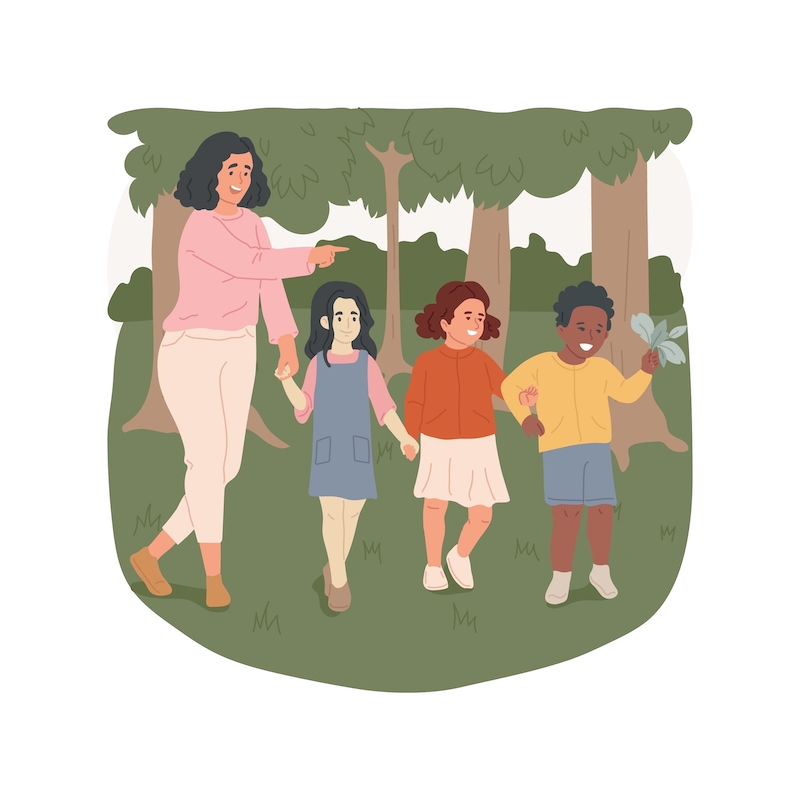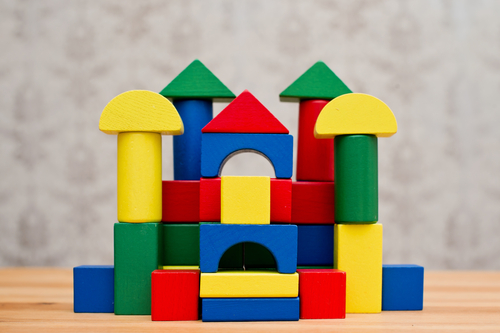Unschooling: A Journey to Self-Directed Learning

Unschooling is a form of education that is based on the belief that children should be allowed to learn through their own interests and experiences, rather than through a traditional school system. This type of education has been gaining popularity in recent years, as more parents are looking for alternative ways to educate their children.
Unschooling is based on the idea that children should be allowed to explore their own interests and learn through their own experiences, rather than being forced to learn certain topics in a certain order. This type of education allows children to learn at their own pace, and to pursue their own interests. It also allows them to develop their own passions and interests, rather than having to conform to a set curriculum.
Unschooling is often seen as a more relaxed form of education, as it does not involve tests or grades. This allows children to focus more on their own interests and learning, rather than worrying about grades and tests. It also allows them to learn in a more natural way, as they are not confined to a certain set of topics and materials.
Unschooling is also seen as a more individualized form of education, as it allows children to pursue their own interests and learn in their own way. This can be beneficial for children who may not thrive in a traditional school setting, as it allows them to learn in a way that is more suited to their individual needs and interests.Unschooling is not without its critics, however.
Some argue that this type of education does not provide children with the necessary skills and knowledge to be successful in life. Others argue that it can lead to a lack of structure and discipline, which can be detrimental to a child’s development.
Despite these criticisms, unschooling is becoming increasingly popular, as more parents are looking for alternative ways to educate their children. It allows children to explore their own interests and learn in their own way, which can be beneficial for some children. Ultimately, it is up to parents to decide whether unschooling is the right choice for their child.
Why Unschool?
Unschooling is an alternative education method that allows children to learn through their own interests and passions, rather than following a traditional school curriculum. It allows children to explore their interests in depth and develop skills in areas that they are passionate about. Unschooling can also help children to develop self-motivation and self-direction, as well as the ability to think critically and problem-solve. It can also help to foster creativity and a love of learning.
How to start Unschooling
Starting unschooling can be an exciting and rewarding experience for both parents and children. Unschooling is a form of education that is based on the belief that children should be allowed to learn through their own interests and experiences, rather than through a traditional school system. This type of education has been gaining popularity in recent years, as more parents are looking for alternative ways to educate their children.
1. Research and learn about unschooling. Read books, articles, and blogs to learn more about the philosophy and principles behind unschooling.
2. Talk to other unschoolers. Connect with other unschoolers to learn more about their experiences and get advice on how to start unschooling.
3. Set up a learning environment. Create a comfortable and stimulating learning environment in your home.
4. Make learning fun. Find creative and engaging ways to make learning fun for your child.
5. Follow your child’s interests. Encourage your child to explore their interests and learn through their own experiences.
6. Provide resources. Make sure your child has access to the resources they need to learn.
7. Monitor progress. Regularly check in with your child to make sure they are making progress.
8. Be flexible. Be willing to adjust your approach as needed to meet your child’s needs.
Is Unschooling Legal?
Yes, unschooling is legal in the United States. Unschooling is a form of education that is based on the belief that children should be allowed to learn through their own interests and experiences, rather than through a traditional school system. This type of education has been gaining popularity in recent years, as more parents are looking for alternative ways to educate their children.
In the United States, unschooling is not regulated by the government. However, each state has its own laws and regulations regarding homeschooling, which may apply to unschooling as well. It is important to check with your state’s laws and regulations to make sure that you are following all of the necessary requirements.
In addition, some states may require that you register your child as a homeschooler, even if you are unschooling. It is important to check with your state’s laws and regulations to make sure that you are following all of the necessary requirements.
Overall, unschooling is legal in the United States. However, it is important to check with your state’s laws and regulations to make sure that you are following all of the necessary requirements.
Unschooling Curriculum
Unschooling is a form of education that is based on the belief that children should be allowed to learn through their own interests and experiences, rather than through a traditional school system. This type of education has been gaining popularity in recent years, as more parents are looking for alternative ways to educate their children.
Unschooling does not follow a traditional curriculum, as it is based on the idea that children should be allowed to explore their own interests and learn through their own experiences. However, there are some resources available to help parents create an unschooling curriculum. These resources include books, websites, and online courses that provide guidance on how to create an effective unschooling curriculum.
In addition, there are a number of unschooling communities online where parents can connect with other unschoolers and get advice on how to create an effective curriculum. These communities can be a great source of support and guidance for parents who are new to unschooling.
Ultimately, creating an unschooling curriculum is a personal process that will vary from family to family. It is important to remember that unschooling is about allowing children to explore their own interests and learn through their own experiences. As such, it is important to be flexible and open to new ideas and approaches.
What does unschooling look like on a day to day basis
Unschooling is a form of education that is based on the belief that children should be allowed to learn through their own interests and experiences, rather than through a traditional school system. This type of education has been gaining popularity in recent years, as more parents are looking for alternative ways to educate their children.
On a day to day basis, unschooling looks different for every family. Some families may have a more structured approach, while others may be more relaxed and open-ended. Ultimately, it is up to the parents to decide how they want to approach unschooling.
Some families may choose to have a more structured day, with a set schedule and activities. For example, they may decide to have a certain amount of time dedicated to reading, writing, and math each day. Other families may be more relaxed, allowing their children to explore their own interests and learn through their own experiences.
No matter what approach a family takes, it is important to remember that unschooling is about allowing children to explore their own interests and learn through their own experiences. As such, it is important to be flexible and open to new ideas and approaches.
Practical examples of unschooling
Unschooling is a form of education that is based on the belief that children should be allowed to learn through their own interests and experiences, rather than through a traditional school system. This type of education has been gaining popularity in recent years, as more parents are looking for alternative ways to educate their children.
Practical examples of unschooling include:
1. Allowing children to explore their own interests and learn through their own experiences. For example, a child may be interested in cooking, so their parents may allow them to explore this interest by helping in the kitchen or taking a cooking class.
2. Encouraging children to take part in activities that help them learn. For example, a child may be interested in music, so their parents may encourage them to take music lessons or join a band.
3. Creating a learning environment in the home. For example, parents may create a library of books, set up a computer with educational software, or provide access to online courses.
4. Taking field trips to places that are related to a child’s interests. For example, a child may be interested in animals, so their parents may take them to a zoo or a farm.
5. Allowing children to pursue their own interests and learn at their own pace. For example, a child may be interested in art, so their parents may allow them to explore this interest by taking art classes or visiting museums.
Ultimately, unschooling is about allowing children to explore their own interests and learn through their own experiences. As such, it is important to be flexible and open to new ideas and approaches.
Unschooling resources to buy
Unschooling is a form of education that is based on the belief that children should be allowed to learn through their own interests and experiences, rather than through a traditional school system. This type of education has been gaining popularity in recent years, as more parents are looking for alternative ways to educate their children.
There are a variety of unschooling resources available to buy, including books, websites, and online courses. These resources can provide parents with guidance on how to create an effective unschooling curriculum and provide support and advice on how to approach unschooling.
In addition, there are a number of unschooling communities online where parents can connect with other unschoolers and get advice on how to create an effective curriculum. These communities can be a great source of support and guidance for parents who are new to unschooling.
Ultimately, it is up to parents to decide which resources are best for their family. It is important to remember that unschooling is about allowing children to explore their own interests and learn through their own experiences. As such, it is important to be flexible and open to new ideas and approaches.
Best Unschooling books to get started
1. The Unschooling Handbook: How to Use the Whole World as Your Child's Classroom by Mary Griffith
2. The Unschooling Journey: A Field Guide for Families by Kerry McDonald
3. Unschooling Rules: 55 Ways to Unlearn What We Know About Schools and Rediscover Education by Clark Aldrich
4. The Unschooling Journey: A Practical Guide to Learning Without School by Terri Dowty5
5. Unschooling: A Lifestyle of Learning by Wendy Priesnitz
6. The Unschooling Option: A Guide to Learning Without School by Mary Griffith
7. Free to Learn: Why Unleashing the Instinct to Play Will Make Our Children Happier, More Self-Reliant, and Better Students for Life by Peter Gray
8. Unschooled: Raising Curious, Well-Educated Children Outside the Conventional Classroom by Kerry McDonald
9. The Unschooling Journey: Learning Without School by Terri Dowty1
0. The Unschooling Revolution: A Guide to Unlearning the Lies We Learn in School by Dayna Martin
How do unschoolers turn out
Research on the outcomes of unschooling is limited, but the available evidence suggests that unschoolers tend to be successful and well-adjusted. Studies have found that unschoolers have strong social skills, are self-directed learners, and have a high level of academic achievement. Unschoolers also tend to have higher levels of self-esteem and confidence, and are more likely to pursue higher education.
Pros and Cons of unschooling
Pros:
1. Unschooling allows children to explore their interests and develop their own passions.
2. Unschooling encourages children to become independent thinkers and problem solvers.
3. Unschooling allows children to learn at their own pace and develop their own learning style.
4. Unschooling provides more time for family bonding and activities.
5. Unschooling offers more flexibility and freedom for children to explore their interests.
Cons:
1. Unschooling can be difficult to manage and may require a lot of time and effort from parents.
2. Unschooling may not provide the same level of structure and guidance as traditional schooling.
3. Unschooling may not provide the same level of socialization as traditional schooling.
4. Unschooling may not provide the same level of academic rigor as traditional schooling.
5. Unschooling may not provide the same level of preparation for college or the workforce as traditional schooling.
Unschooling vs Homeschooling
Unschooling and homeschooling are both forms of education that take place outside of a traditional school setting. The main difference between the two is that unschooling is a more relaxed approach to learning, while homeschooling is more structured and follows a more traditional curriculum. Unschooling is based on the idea that learning should be self-directed and that children should be allowed to explore their interests and learn at their own pace. Homeschooling, on the other hand, is more structured and follows a more traditional curriculum. Homeschooling also typically involves more parental involvement and guidance.



